This "Bridgerton" Glossary Will Have You Speaking Like Lady Whistledown
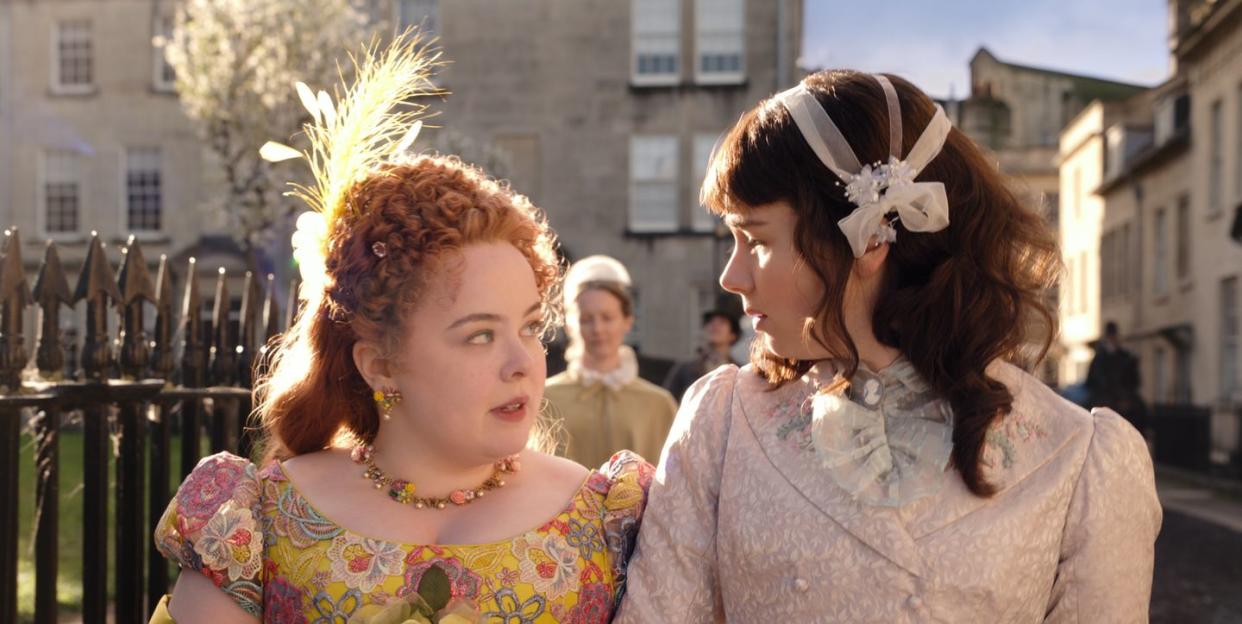
- Oops!Something went wrong.Please try again later.
I’ve never been into period dramas—until Bridgerton. The Crown? That’s a royal “no" for me. Downton Abbey? Please, I just realized it’s not “Downtown Abbey.” Stop judging me, I can hear you.
Then Bridgerton dropped on Christmas, and everything changed. I loved the shade disguised as pleasantries, the balls that could make Cinderella envious, and the undeniable chemistry between a pair who seemed to have any hand but happily-every-after in their cards. To put it simply, I was enchanted by the Shonda Rhimes-produced, romance novel-inspired series from the very first episode.
There was just one problem. Watching the drama, which is set in 1813 London, occasionally felt like translating a foreign language. From talk of the “ton” to notorious “rakes,” I was often confused by the characters’ Regency speak. But apparently if I read more romance novels, I might not have mistaken a rake for a gardening tool instead of a man.
“Those kinds of words are in the zeitgeist of historical romance. It’s part of the character and world building,” bestselling historical romance author Sarah MacLean tells OprahMag.com, before adding the disclaimer that even the language used in romance novels, including Bridgerton, is not always perfectly historically accurate. “If it were, as a modern viewer, it would be incredibly dense and difficult to wrap your head around probably,” MacLean says.
Eva Devon, author of Regency romances like The Spinster and the Rake, out in February, puts it this way: “A great way of describing the language of this show is that it's an invitation to the actual older language. It uses the tools of the language of the time, but makes it really accessible and fun and inviting for a modern viewer.”
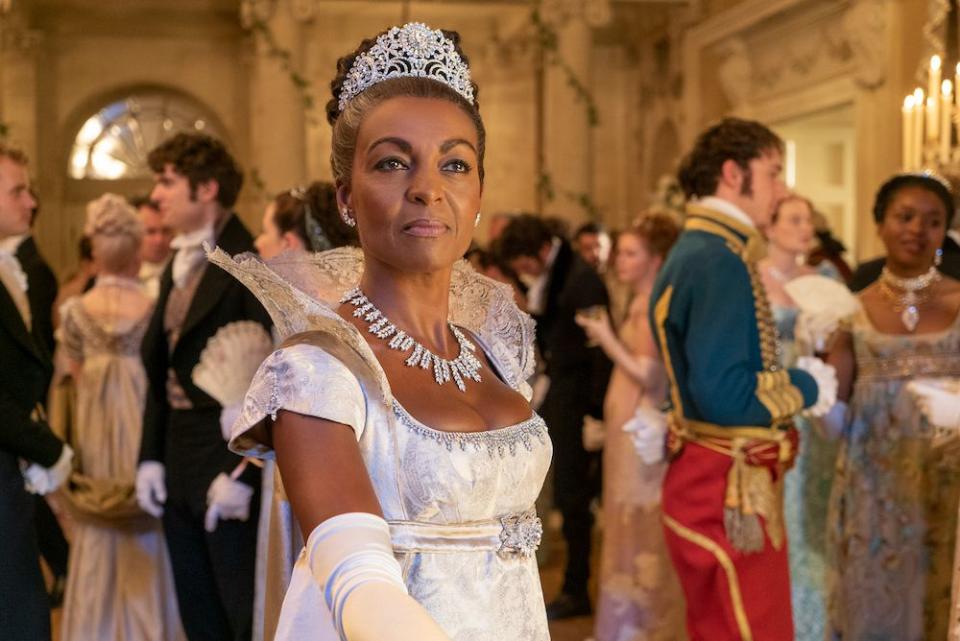
With a little help from MacLean and Devon, I assembled a glossary for Bridgerton’s colorful vocabulary. Consult it enough, and you'll be able to ghostwrite just like Lady Whistledown.
For extra credit, Devon encourages fans to weave their favorite Bridgerton words into their daily vocabulary. "If it brings you joy to be like, ‘He’s such a rake’ or ‘Let’s have a promenade,’ then you’re having fun with life,” says Devon. “The more fun we can bring to our lives right now is a really wonderful thing.”
Promenade

In short, the verb “to promenade” means to walk in public—but the act is far more significant than just taking a stroll around the park. “Before Facebook, people had to have a way to prove that they were in a relationship," says MacLean. “Promenading with a hot duke was just the thing to make sure everyone knew you were courting.”
Used in a modern sentence:
She was crushed when she saw her ex promenading through the music festival with the Instagram influencer.
Facer

A “facer” is an elegant way to describe a punch in the face. A special shout out goes to Daphne Bridgerton delivered a facer perfectly when Lord Berbrooke crossed the line with her in the garden.
Used in a modern sentence:
She took self-defense classes to ensure she could give a predator a facer if she ever had to.
Ton

Personally, I thought the characters kept saying “town” with an accent—but I was wrong. Short for “le bon ton,” which means “good manners” or "good form" in French, the “ton” in Bridgerton refers to the upper echelon of English society. They’ve got the money, power and respect.
Used in a modern sentence:
Members of the ton were seen at fashion week on Saturday.
Courses

Friends, “courses” just means getting your period. “Aunt Flo visited even in the 19th Century,” jokes MacLean, adding romance novels are one of the few literary genres where monthly courses are normalized.
Used in a modern sentence:
I wanted to wear my white dress to the day party, but I opted for the red one, because my courses are due this week.
With child
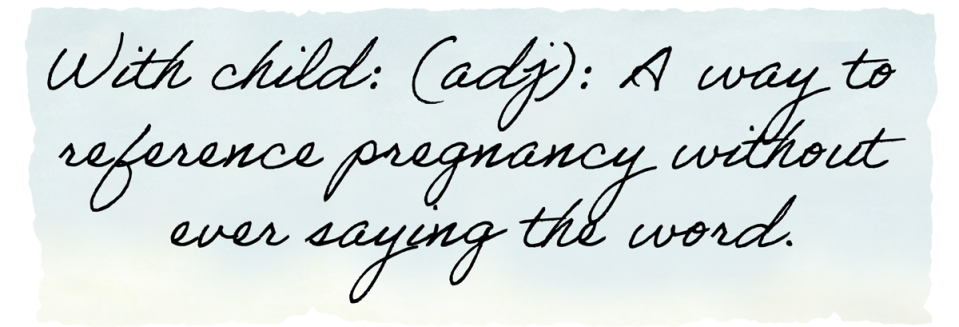
Oh, your “courses” haven’t arrived as expected, you say? Then, honey, you may be “with child.” Bridgerton is teeming with clever ways to allude to pregnancy without ever saying the word. The terms include “increasing,” “in a family way” or having a “lying in.”
“You're absolutely never going to be described as pregnant. How gauche,” says MacLean.
Used in a modern sentence:
When I learned I was with child, all of my unusual cravings made sense.
Sire an Heir
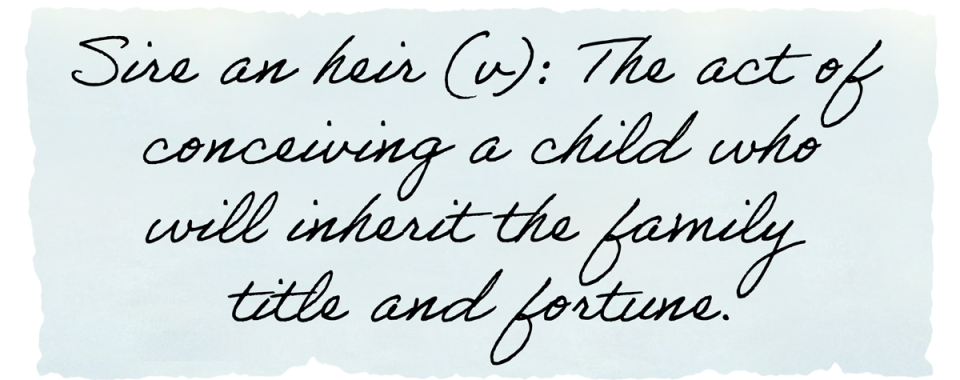
Since we’re on the topic of babies, this phrase refers to conceiving a child who will inherit the family title and fortune. “It almost always needed to be a boy, thanks to the male-centric laws of the time,” says Devon.
Used in a modern sentence:
His obsession with siring an heir blinded him to how capable his daughters were of running the family business.
Swoon

To “swoon” is to faint in style. But most characters swoon because they’re being extra, not because they’re in any physical distress. “The romance heroine swoons with grace and dignity. And from sheer, delicious emotion,” says MacLean.
Used in a modern sentence:
I swooned when I learned Lori Harvey snatched up Michael B. Jordan because I was sure he was the love of my life.
Snuff
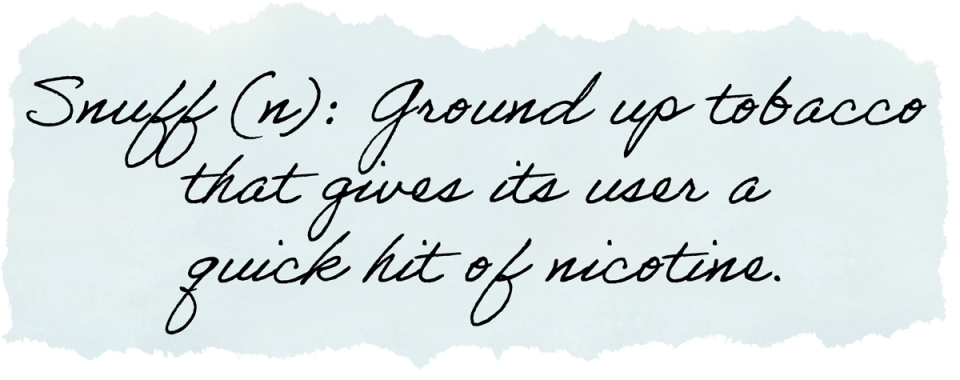
Was anyone else shocked when Queen Charlotte seemed to take a sniff of cocaine during her tea with the Bridgerton matriarch? Just me? Well, let me clear this up: The royal was actually using snuff, an awakener of ground up tobacco that gives the user a quick hit of nicotine.
“Legend has it that Queen Charlotte liked it so much she had an entire snuff room in her residence,” spills MacLean.
Used in a modern sentence:
Pass on the snuff, because your nostrils deserve better and you can just drink some coffee if you need a boost during your day.
Modiste
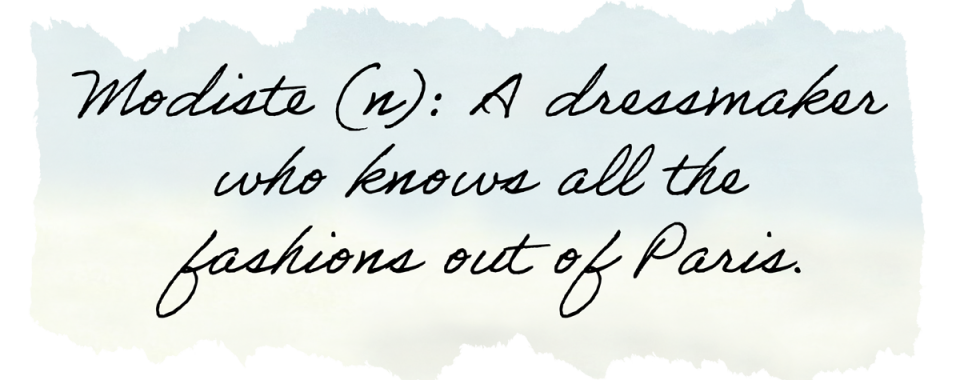
If you were a heroine in a regency romance novel, you’d want to keep the local modiste—or dressmaker—on your side to stay current with the latest trends out of Paris, lest you wear the same thing twice. The horror. “Do not upset her!” implores Devon.
Used in a modern sentence:
I must hurry to the modiste to tailor my power suit for my interview on Monday.
Countenance

This refers to a person’s facial expression. If you need a quick study, the Duke has many excellent ones.
Used in a modern sentence:
I tried to maintain a pleasant countenance while my toddler had a meltdown, but I was seconds away from losing it, too.
Rake

Simon, like many of the romance genre’s most memorable heroes, is a rake through and through. According to Devon, a rake is “a fella who loves a very good time. Monogamy need not apply.” Rakes, however, can be reformed—that’s the point. “When he meets the right one, he hangs up his partying ways,” Devon says. More about the meaning of this must-know word here, where we indulgently dove into its intricacies.
Used in a modern sentence:
I thought the partner at my firm was cute, but once I heard he was a total rake, I denied his invitation to enjoy tapas on his yacht.
Duke

This nobility title is the highest position in the land, after HRH (his/her royal highness). Many HRHs are also dukes and duchesses. Devon translates the Duke of Hastings’ status to our society. “If you’re a Duke, you’re a Regency billionaire with probably an old and powerful family, says Devon. “Do not upset this guy.”
Used in a modern sentence:
Prince William, Duke of Cambridge, is currently second-in-line to the British throne.
Viscount

A hereditary title within a peerage or nobility system, a viscount is above a baron (which is a landowner nobleman), but below a duke. Viscounts have historically had legal duties, such as presiding over jurisdiction of a county.
Used in a modern sentence:
According to the British etiquette resource Debrett’s, there are currently 115 viscounts.
Diamond of the First Water

Queen Charlotte in Bridgerton summarized it best: Flawless. This debutant has got it going on. Wit, beauty and charm–she is the total package. If you don’t love her, you want to be her.
Used in a modern sentence:
I need to look like a diamond of the first water on my wedding day!
The Dark Walk
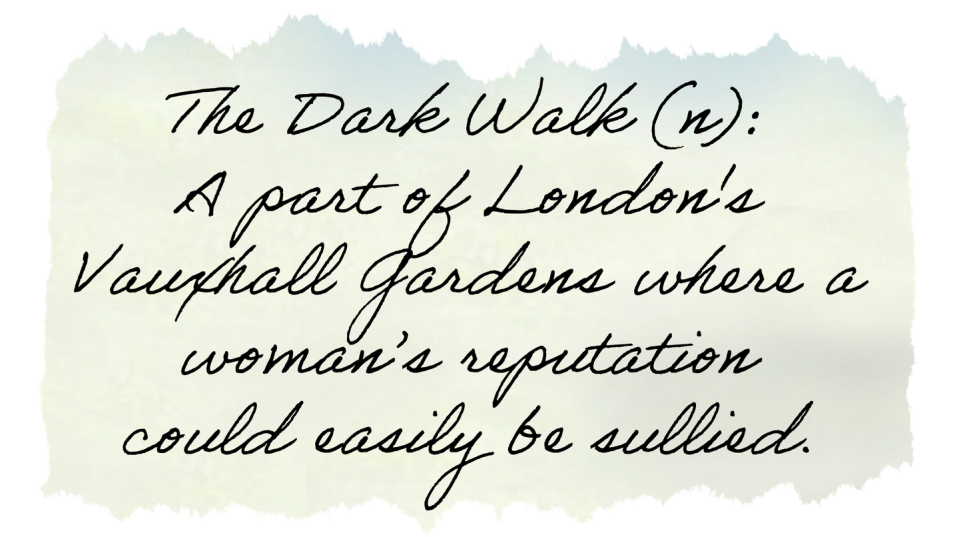
The Dark Walk is a specific reference to London’s Vauxhall Pleasure Gardens, which was an outdoor park and nighttime carnival, according to MacLean. The furthest place in the gardens from the entrance, the Dark Walk was where a woman’s reputation could easily be sullied after getting steamy with a neighborhood rake. It also could be a place where women might be assaulted, then later forced to marry the unscrupulous offender, says MacLean. As you can see, danger on all fronts.
Used in a modern sentence:
I laced my keys between my knuckles as I cut through the Dark Walk to my car, because I was not in the mood for a scandal.
For more ways to live your best life plus all things Oprah, sign up for our newsletter!
You Might Also Like

